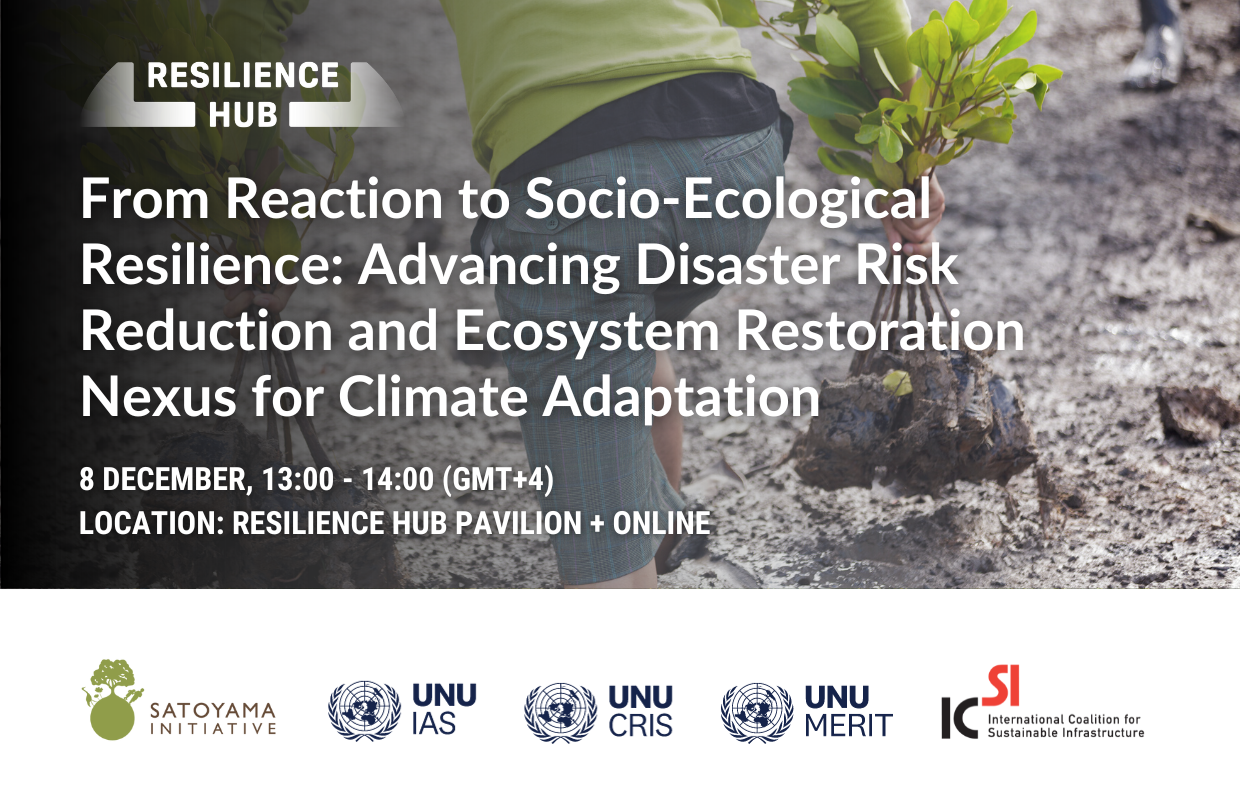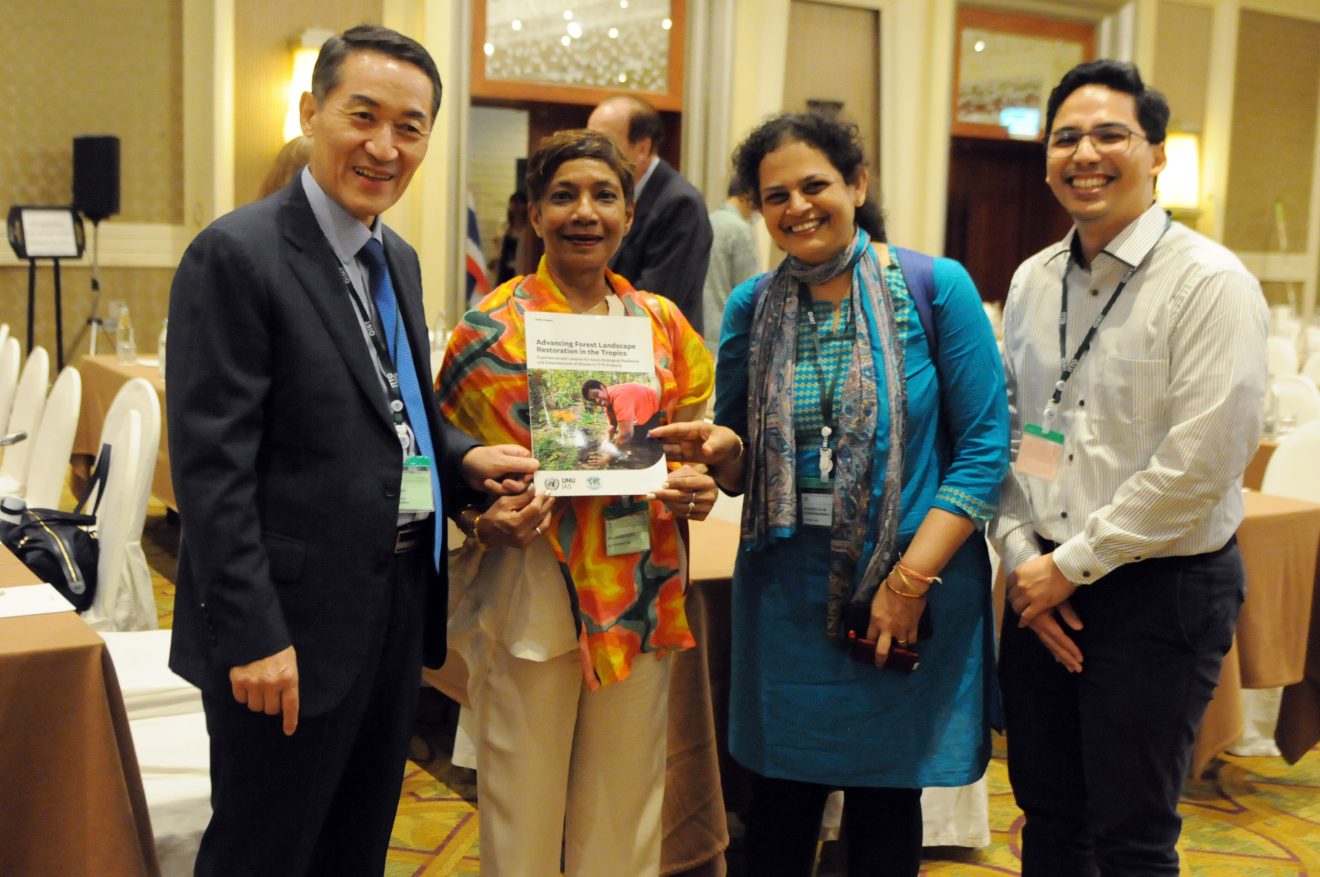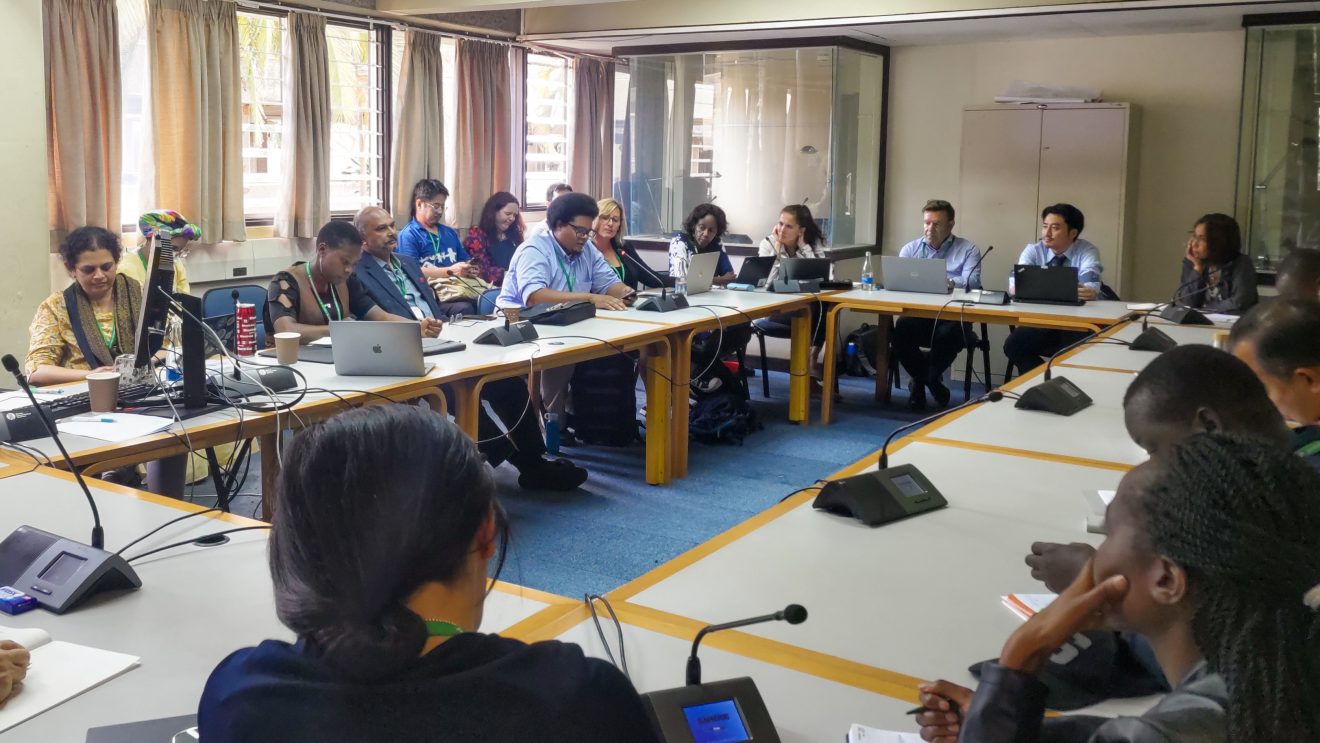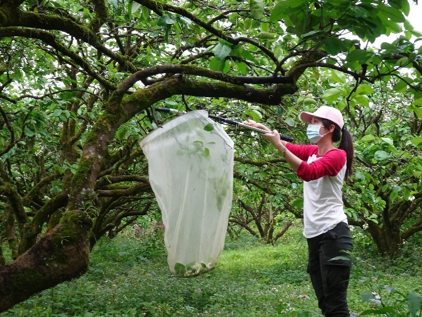|
|
|
|
🍂Welcome to the Autumn Newsletter!
|
Below are some highlights of what you will find in this seasonal edition:
|
- What you need to know ahead of COP28
- IPSI at COP28: events on socio-ecological resilience and collaboration
- Report by UNU-IAS and ITTO on advancing forest landscape restoration released at the 59th International Tropical Timber Council
- Case study on habitat creation for beneficial insects in Hualien
- And more!
Contact us to submit case studies and news about your activities.
|
|
|
|
|
|
UNEP's Report Sets Stage for Climate Action Ahead of COP28
|

|
|
|
At the same time, the report highlights progress made since the signing of the Paris Agreement. Notably, when the agreement was adopted, greenhouse gas (GHG) emissions in 2030, based on existing policies, were projected to increase by a staggering 16%. However, a more optimistic trajectory has emerged, with the current projection indicating a comparatively modest 3% increase. This positive shift underscores that collective efforts have, to some extent, curbed the upward trajectory of emissions.
|
In the press release of the report, Antònio Guterres, Secretary-General of the United Nations, emphasized that it is still possible to make the 1.5 degree limit a reality if we tear out the poisoned root of the climate crisis, fossil fuels, through a just and equitable transition to renewables.
|
The first Global Stocktake at COP28 emerges as a pivotal moment, providing a structured framework to shape new ambitions. It will play a crucial role in informing the next round of Nationally Determined Contributions (NDCs) that countries are slated to submit in 2025, complete with targets for 2035.
|
|
The urgency for such a transition extends beyond climate concerns. If the world falls short of these climate goals, the ramifications for biodiversity would be severe. Ecosystems around the globe would face heightened risks of collapse, jeopardizing countless species. As discussions unfold in Dubai, the world watches, hoping for decisive actions that not only curb climate change but also safeguard the biodiversity that is vital for the health and resilience of our shared home.
|
|
IPSI at COP28
|

|
The event will focus on practical measures for ecosystem-based disaster risk reduction, aiming to empower communities to 'bounce forward' instead of bouncing back. Blending disaster risk finance, climate decision tools and real-world examples, the session will explore innovative case studies, from finance mechanisms to grassroots nature-based solutions, emphasizing the vital role of ecosystem restoration for sustainable socio-ecological resilience.
|
This event will include an interactive 'fishbowl' session, where participants will share resilience challenges, propose solutions and discuss the way forward.
|
For in-person participation, the Resilience Hub (Blue Zone) is accessible to all COP28 participants.
|
Online participation is open to the public. Please register in advance on the Resilience Hub virtual platform.
|
|
Co-organized by the IPSI Secretariat, UNU-IAS, UNU-CRIS, UNU-MERIT, and the International Coalition for Sustainable Infrastructure (ICSI).
|
|
|
|
|
The Resilience Hub, established at COP26, serves as the primary platform for global collaboration on climate resilience and adaptation at UNFCC COP. It fosters a diverse community, promoting knowledge sharing, co-creation of solutions, and catalyzing action. The Hub aims to center locally-informed, equitable resilience solutions for people and nature in the COP agenda, amplifying the voices of the most vulnerable.
|
|
|
|
|
|
|
|
- Lesson Learned from Socio-Ecological Production Landscapes (SEPLS) in Sri Lanka Way Forward for Possible Collaboration
9 December, 17:00 - 18:30 Dubai
This side event is organized by the Climate Change Secretariat of the Sri Lanka Ministry of Environment in collaboration with IPSI member Green Movement of Sri Lanka Inc.
|
This event will explore the unique Socio-Ecological Production Landscapes in Sri Lanka, particularly the Kandyan Forest Home Gardens (KFHGs). These landscapes hold a rich cultural identity developed over centuries and contribute significantly to ecological, social, and economic well-being. Learn about the challenges faced, such as urbanization and ecosystem degradation, and discover the proposed integrated approach for sustainable management.
|
|
In-person participation is open to all COP28 participants and will be located at the Sri Lanka Pavilion.
|
|
|
|
Will you be attending COP 28?
|
|
Let us know if you will hold a side event, pavilion, or any other activity during COP 28! We will help you spread the word and you could send us a news story about it to be featured in the next IPSI newsletter.
|
|
|
|
|
|
|
|
IPSI Secretariat Spotlights Insights from Tropical Timber Projects at 59th ITTC Session
|

|
(L-R) Hwan-ok Ma, ITTO Secretariat; Sheam Satkuru, ITTO Executive Director; Suneetha Subramanian, UNU-IAS; and Satrio Adi Wicaksono, International Union for Conservation of Nature (IUCN). Photo by IISD/ENB | Diego Noguera
|
The International Tropical Timber Council (ITTC), the governing body of the International Tropical Timber Organization (ITTO), met in Pattaya, Thailand, for its fifty-ninth session. The IPSI Secretariat and IPSI member, ITTO, presented a joint evaluation report highlighting socio-ecological resilience and gender considerations in Forest Landscape Restoration (FLR) projects.
|
Established in 1986 to address concerns about tropical forests, ITTO expanded its focus beyond regulating timber trade to cover broader issues like conservation, sustainable management, climate change, biodiversity loss, and land degradation.
|
On 13 November, under the Committee on Reforestation and Forest Management (CRF), Suneetha Subramanian (Research Fellow, UNU-IAS / IPSI Secretariat) reported on the outcomes of a thematic group evaluation of 14 ITTO projects on forest landscape restoration. Subramaniam emphasized that while projects embraced participatory approaches, gender considerations were lacking. She urged the integration of peer learning and systems to recognize good practices.
|
|
Read the full report in the RECENT PUBLICATIONS section below.
|
For more information on the ITTC 59, go to the ITTO website.
|
|
|
|
Side Event Discusses Role of Landscape Approaches in Ecosystem Restoration
|

|
|
|
Photo by Rina Miyake / UNU-IAS
|
On 16 October 2023, the IPSI Secretariat co-organised a side event at the 25th meeting of the Subsidiary Body on Scientific, Technical and Technological Advice (SBSTTA 25) of the Convention on Biological Diversity (CBD) in Nairobi, Kenya. The event highlighted the role of integrated landscape approaches in achieving the goals of the Kunming–Montreal Global Biodiversity Framework (GBF) and the UN Decade on Ecosystem Restoration.
|
|
Read more about the event here.
|
|
|
|
|
|
Advancing Forest Landscape Restoration in the Tropics: Experiences and Lessons for Socio-Ecological Resilience and Empowerment of Women in ITTO Projects
|
|
|
Forest Landscape Restoration (FLR) is a holistic approach to rejuvenate degraded forest landscapes and improve human well-being. This policy report explores the advances made in FLR in the tropics and analyzes 14 FLR projects funded by the International Tropical Timber Organization (ITTO). The report highlights the challenges in implementing FLR and how well gender considerations were applied to project activities.
|
The report recommends embedding FLR principles in all forestry-related implementation policies, along with appropriate capacity development programs facilitated through innovative mechanisms like peer learning exchanges and social learning tools. It stresses the need for principles of equity, including gender-sensitive plans, to be imbedded in policy plans and programmes.
|
|
The publication received financial support from the ITTO, and the collaborative project analysis was conducted by Suneetha Subramanian (Research Fellow, UNU-IAS / IPSI Secretariat).
|
|
|
|
|
|
Driving Sustainable Consumption and Production at the Local Level: Education for Sustainable Development projects from the global RCE network
|
|
|
This book recently published by UNUIAS features 12 projects from around the world that demonstrate the impact of community-based education on progress towards achieving SDG 12 (responsible consumption and production). Developed by Regional Centres of Expertise on Education for Sustainable Development (RCEs), the projects addressed resource efficiency; waste management and minimization; and consumer behaviour.
|
|
To find out more about the Global RCE Network, please visit the RCE Portal.
|
|
|
|
|
|
|
|
Investigation and screening of aboriginal plants as habitat creation plants for beneficial insects in tribes in Hualien
|

|
Figure 3. Sampling insects by beat netting in pomelo orchard.
|
Recent case study submitted by Hualien District Agricultural Research and Extension Station of the Council of Agriculture.
|
Dive into the intricate relationship between aboriginal farming and ecological preservation in Hualien's east coast tribes. Researchers explored tribal farming fields, studying essential beneficial insects crucial for natural pest control.
|
|
Nestled within the pristine landscapes of the east coast tribes, where agriculture harmonizes with nature, this research addresses climate-induced challenges and reduced reliance on pesticides. By championing indigenous plants and eco-conscious farming methods, the study envisions a future where agriculture flourishes while safeguarding the delicate tribal ecosystem.
|
|
|
|
|
|
|
|
|

|
Let us know if there are any changes in your e-mail address or contact information.
Secretariat of the International Partnership for the Satoyama Initiative
United Nations University Institute for the Advanced Study of Sustainability (UNU-IAS)
5–53–70 Jingumae
Shibuya-ku, Tokyo 150-8925
Japan
Tel: +81 3-5467-1212
Fax: +81 3-3499-2828
Email: isi@unu.edu
If you have been forwarded this newsletter and would like to SUBSCRIBE, you can do so on the IPSI website here.
|
   
|
|
|
|
The activities of the IPSI Secretariat are made possible through the financial contribution of the Ministry of Environment, Government of Japan
|
|
|
|
|
|
|
|